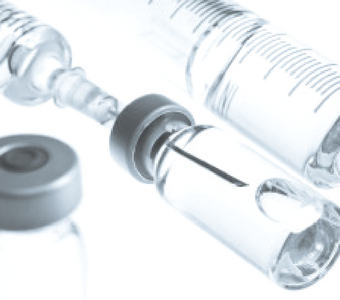Shares of ARIAD Pharmaceuticals (NASDAQ:ARIA) have been moving sporadically in the last week as traders test the limits of its latest range; ARIA set a new 52-week high last Wednesday and again on Tuesday – at $24.05 – but subsequently closed the day weak, at $23.18. On Wednesday morning, the stock is off by 2% in premarket trading, to $22.78. After delivering consistently higher-highs and higher-lows in the last two months, a very bullish trend, ARIA appears to be pulling back slightly since its recent impressive performance.
The hesitancy began on the 19th, when the company reported that Molecular MD, a private molecular diagnostics firm, was voluntarily withdrawing a Premarketing Approval application (PMA) to the FDA for its BCR-ABL T315I mutation test, a test that would have been used as a companion product to ARIAD’s lead candidate ponatinib. The ARIAD drug is under review by the FDA as a treatment for resistant or intolerant Chronic Myeloid Leukemia (CML) and Ph+ acute lymphoblastic leukemia (Ph+ ALL) and demonstrated positive results in clinical testing. The FDA informed Molecular MD that the diagnostic was no longer considered a companion product to ponatinib because the test must provide essential information for the safe use of a therapeutic product.
The news is less dire than it first seemed. The FDA deemed the T315I test unessential for safe diagnosis and treatment with ponatinib not for safety concerns, but simply simply because it is unnecessary. The diagnostic was used in clinical trials for ponatanib’s development to identify patients with the T315I mutation, however, the test is not required for the FDA to approve ponatinib. Early adopters will still have the ability to identify target patients as other tests exist that enable physicians to get this information and treat patients accordingly. Analysts have stated that the rejection of Molecular MD’s test is a “non-event”, and that they still expect a major pharmaceutical company to partner the drug in the coming months.
The final verdict? ARIAD still has a potential blockbuster in the approval process and two more promising drugs in the pipeline. Management expects an approval early next year with a commercial launch following shortly after. Now that we’ve seen where ARIAD can go, this may be a good time to buy into a company with real opportunity in the oncology space.



